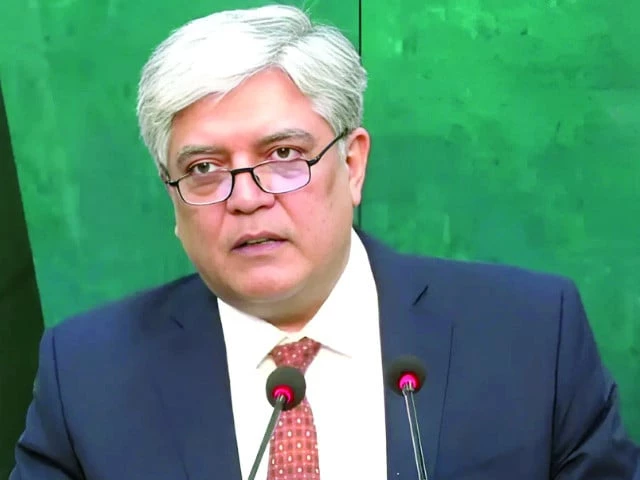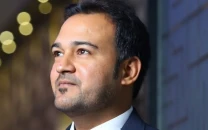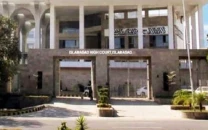'Misleading' mention in US-India statement 'surprises' Pakistan
FO terms joint declaration 'one-sided' Expresses concern over military transfers to Delhi Vows to bring terror

The Foreign Office on Friday rejected a reference to Pakistan in the joint statement issued after Indian Prime Minister Narendra Modi's meeting with US President Donald Trump, expressing surprise over what it described as "one sided and misleading" allegations.
Modi on Thursday held wide-ranging talks with Trump at the White House. In the joint statement, the two sides reaffirmed that the global scourge of terrorism must be fought and terrorist safe havens eliminated from every corner of the world.
"They committed to strengthen cooperation against terrorist threats from groups, including Al-Qa'ida, ISIS, Jaish-e Mohammad and Lashkar-e-Tayyiba, in order to prevent heinous acts like the attacks in Mumbai on 26/11 and the Abbey Gate bombing in Afghanistan on August 26, 2021," read the joint statement.
Recognising a shared desire to bring to justice those who would harm our citizens, the US announced that the extradition to India of Tahawwur Rana has been approved.
They called on Pakistan to expeditiously bring to justice the perpetrators of the 26/11 Mumbai and Pathankot attacks, and ensure that its territory is not used to carry out cross-border terrorist attacks.
The leaders also pledged to work together to prevent proliferation of weapons of mass destruction and their delivery systems and to deny access to such weapons by terrorists and non-state actors.
"We consider the Pakistan-specific reference in the 'India-US Joint Statement of February 13, 2025 as one-sided, misleading and contrary to diplomatic norms," Foreign Office spokesperson Shafqat Ali Khan told reporters at his weekly briefing.
"We are surprised that the reference has been added to the Joint Statement notwithstanding Pakistan's counterterrorism cooperation with the United States," he added.
He said such references cannot cover up India's sponsorship of terrorism, subversion and extrajudicial assassinations in the region and beyond; nor can they shift international attention from the stark reality of India being a safe haven for the perpetrators of hate crimes against Muslims and other minorities.
The joint statement, according to the spokesperson, failed to address non-compliance of India with the UNSC resolutions which is the key source of tension and instability in the region and to take cognizance of the grim human rights situation in the Indian-Illegally Occupied Jammu & Kashmir (IIOJK). Regrettably, this is tantamount to abdication of international responsibility.
"The international community recognises Pakistan's efforts and sacrifices in the fight against terrorism. As a country that has enormously suffered from terrorism, Pakistan would continue to contribute constructively to the regional and global efforts to promote peace and stability in the region," he said.
He said Pakistan remains committed to bring the fight against terrorism to its logical conclusion by eliminating this scourge from its soil. "Pakistan also remains committed to continue with counter terrorism efforts to address the issue of terrorism including acts of terrorism perpetrated by foreign elements."
During Modi's visit, President Trump signaled further deepening of defense ties with India, including the sale of F-35 stealth fighter jets.
The spokesperson, however, said Pakistan was deeply concerned over the planned transfer of advanced military technologies to India. "Such steps accentuate military imbalances in the region and undermine strategic stability. They remain unhelpful in achieving the objective of a durable peace in South Asia," he added.
"We urge our international partners to take a holistic and objective view of the issues of peace and security in South Asia and refrain from endorsing positions that are one-sided and divorced from ground realities."
Despite criticizing the joint statement, the Foreign Office spokesperson said Pakistan considers relationship with the US important. "It's a multi-dimensional relationship, rooted in history, with decades-long history of cooperation. It's a very dense relationship and we remain committed to continuing to work with the new administration for the further consolidation and growth of Pakistan-US relations," he said.



















COMMENTS
Comments are moderated and generally will be posted if they are on-topic and not abusive.
For more information, please see our Comments FAQ